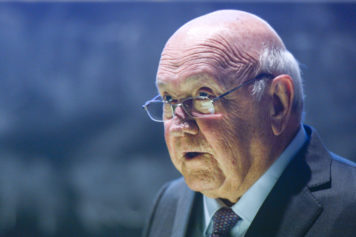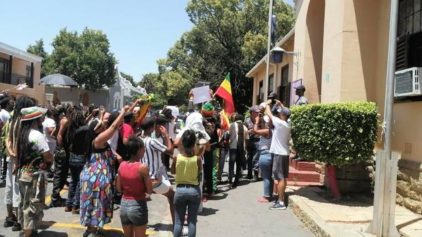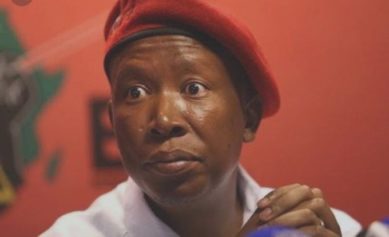Income inequality is threatening to tear apart the fragile democracy that South Africa has been living under for the past 18 years, as the gap between the income of blacks and whites continues to be enormous and foreboding.
In South Africa, the wealthiest 10 percent of the population earn nearly 60 percent of the country’s total income. While that split is similar to that in the United States, what makes it more acute in South Africa is that virtually all the wealthy are white and all the poor are black—whereas in the U.S., with 10 percent of whites in poverty, 27.4 percent of blacks, 26.6 percent of Hispanics and 12.1 percent of Asians, there is at least the perception that poverty is scattered throughout the population.
In South Africa, the white per capita income is nearly eight times that of blacks, according to the South African Institute of Race Relations.
The gap has certainly not gone unnoticed, particularly among young people, whose unemployment is so high that leaders fear the country’s fragile peace may be in danger of exploding.
President Jacob Zuma recently acknowledged that the slow pace of post-apartheid economic redistribution is becoming a threat to the country’s economy, the biggest in Africa.
“The structure of the apartheid-era economy has remained largely intact,” he said at a recent ANC policy conference. “The ownership of the economy is still primarily in the hands of white males as it has always been.”
Zuma called for more state involvement in mining and land ownership to address “inequalities inherited from apartheid.”
At a recent conference at the University of Cape Town attended by Atlanta Black Star, the anger of the youths was evident, as they gathered to protest the state of government housing, the lack of jobs and the income inequality. There are nearly 18 million working age South Africans without a job. In Johannesburg, the unemployment rate is a staggering 24.7 percent.
The unease was brought into sharp relief by the massacre earlier this month of 34 striking miners by police in Marikana. The striking miners, numbering up to 3,000, remain in protest of their meager wages; they make the equivalent of $484 a month on a physically challenging and dangerous job.
“Urgent action is needed to reverse the big ship of poverty,” said Francis Wilson, the University of Cape Town acting Pro-Vice Chancellor. “Nearly 20 years after democracy and we haven’t done a lot about either widespread poverty or deep inequality. Income inequality has got worse, not better. The debate in South Africa seems to revolve around who is going to be the next president and not the pressing issues facing the country.”
It is an urgent situation, heightened by bold talk from angry youths, especially males, who are tired of empty promises. Vice chancellor Dr. Max Price said “Arab Spring” uprisings could be the result of this tumult, and soon, if the crisis is not addressed.
“We have been working very hard to bring together academics from 19 universities around the country, who have submitted well over 300 papers,” Price said. “In addition, we have gone out of our way to draw in some very good (authorities) that are working at the coalface of education, rural development, health and a number of other sectors to share what they are doing.”
But in the midst of the anger, former president FW de Klerk, the nation’s last white president under apartheid and the Nobel peace laureate, called the discontent the “new racism” in South Africa.
“The Mandela and Mbeki era of reconciliation is over,” he said. “White males are quite unjustly blamed for the continuing triple crisis of unemployment, inequality and poverty.”
According to de Klerk the governing ANC is using racism as a “smokescreen” to hide its failures.
Curtis Bunn contributed to this report.


